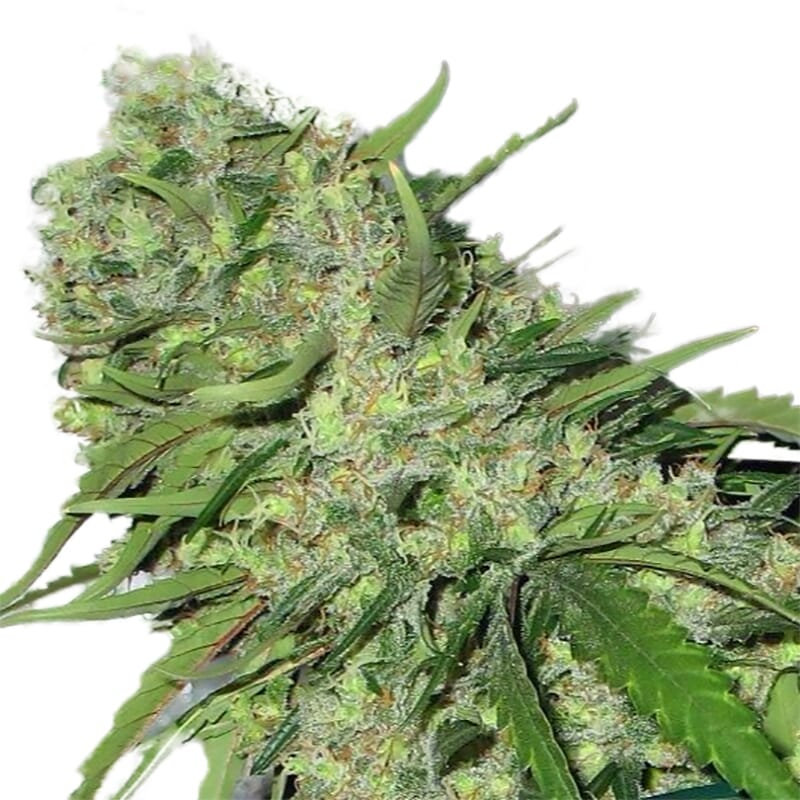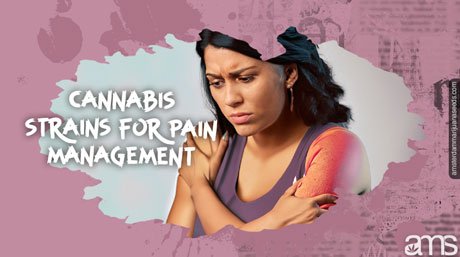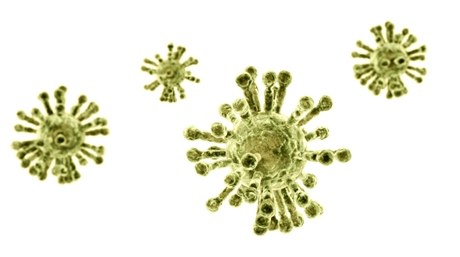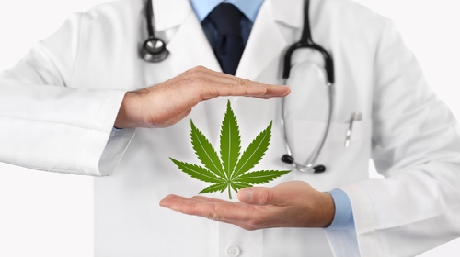Your mindset is not wrong. It is a fact that you can’t just mix any other stuff with medication. All medications come with a few instructions on how to take them effectively and safely. It is imperative to be cautious of what you’re taking when you are under any form of medication.
What is the reason?
The reason is simple; certain medicines can have a negative reaction when mixed with some substances. Most physicians give you a list of substances that you shouldn’t take while on antibiotics. However, they rarely include cannabis on the list.
Same case to pharmaceutical manufacturers; they rarely list cannabis and its products as one of the substances that shouldn’t be taken when taking medications. Both probably assume that consumption of cannabis is not common among their patients.
While they may be wrong, it is important to be honest and tell your doctor that you consume marijuana. Your health comes first, and so, you shouldn’t dwell on assumptions. Bring out any questions you may have regarding any substance that you may be using.
Despite the legal status of cannabis in your state, bringing such a question or conversation to your doctor is always negligible. He has an oath of secrecy, meaning that your conversations are confidential. Your doctor will provide you with medical advice without any legal judgment.
How Do The Antibiotics Work In Your Body?
Before you go to the conclusions on whether you will smoke weed while still on antibiotic medications, you probably need first to know what antibiotics are and how they work on your body. It is most likely that you have been prescribed antibiotics before. Antibiotics are ideal to stop the growth of microorganisms. That is why your doctor will prescribe the drugs to fight the infections in your body.
Antibiotics begin to work immediately you start taking them. After two to three days, you might start feeling better, but your doctor will have cautioned you to complete the dose. The dosages for the antibiotics vary between 7-14 days, but that varies with the infection’s nature. Shorter treatments like injections and intravenous-induced ones work precisely.
Different antibiotics work on different strains of bacteria. Some are used to treat multiple bacteria strains. Over the years, some bacteria have become resistant to antibiotics. Antibiotic-resistance means that the drug is not able to kill the disease-causing organisms.
The reason is overuse of the drug. Resistance to the drugs can occur because of failure to finish the entire antibiotic regimen. Resistance will happen if you do so repeatedly.
It is a worrying antibiotic trend that is causing sleepless nights to researchers globally. An example of an antibiotic-resistant bacterium is the Staphylococcus Aureus strain. It is not easy to treat the strain because it has become resistant to several antibiotics.
Antibiotics interact with certain drugs. Interactions mean that they have a different effect than what is expected. The results are side effects such as drowsiness, nausea, blurred eyesight, skin reactions, confusion, constipation, diarrhea, and many others.
When your doctor is prescribing any form of medication, including antibiotics, he will ask you a few questions to know what suits you best. He will also ask you not to use some foods, drinks, or cigarettes when you are undergoing therapy.
Weed And Antibiotics
In recent research conducted from the University of Southern Denmark, a group of researchers found that a combination of antibiotics and CBD (cannabinol) has a more powerful effect in treating certain infections than the antibiotics alone.
The study sought to analyze how different compounds work against bacteria, including Staphylococcus Aureus, gram-positive bacteria that causes serious infections like bacteremia and pneumonia.
The researchers also investigated treatment for gram-negative bacteria. After they analyzed different cell cultures with the bacteria alongside antibiotic bacitracin (BAC), CBD and BAC, CBD, ethyl alcohol, or nothing at all, each cell culture was subjected to the drugs for a minimum of two and a half hours.
The researchers found that CBD boosted the effects of BAC against Staphylococcus Aureus and other gram-positive bacteria. These detailed scientific findings are limelight to the threat posed by antibiotic resistance in treating multiple diseases and infections.
In early 2020, another research revealed that a cannabinoid that goes by the name cannabigerol (CBG) could effectively neutralize Staphylococcus Aureus in mice and Petri dishes. This research and many more give a clear indication that it is okay to smoke your weed while you are taking antibiotics. The truth is that there are minimal interactions of the antibiotics with the herb. There are so far no recorded contraindications of the drugs with cannabis.
One of Canada’s best medical cannabis experts, Terry Roycroft, says that smoking marijuana while on antibiotics may not be as harmful as people think. Roycroft has a deep knowledge of medical cannabis and its application from the Medicinal Cannabis Resource Centre Inc. (MCRCI), Canada.
MCRCI is a private organization whose mandate is to help patients benefit from the use of medical cannabis.
The research reveals that some doctors are still researching on whether some antibiotics work better when combined with cannabis. There are few interactions of combining the herb with an antibiotic that have been reported but they are very mild. The benefits of marijuana thus outweigh these interactions.
Interestingly, some other studies have shown that CBD may have antibiotic properties. Conclusive reports from Australian scientists show that cannabidiol kills numerous bacteria strains, including the notorious resistant strains that have proved traditional antibiotics to be useless.
So far, it still seems CBD has a long way to go research-wide to replace antibiotics with it. The scientists admit that they still don’t know how CBD works, but it has a unique mechanism of action given that it works against antibiotic-resistant bacteria.
Further results show that CBD works on the skin surface. The scientist will have to focus more on further studies to determine if the product can treat systemic infections like pneumonia, bronchitis, or complicated tissue infections. Its effectiveness will also be tested when it is given orally or by intravenous.
All the studies conducted don’t seem to favor smoking weed while you are on antibiotics. They all lean towards CBD, which is an extract and active ingredient in the cannabis plant. The evidence is that no medical doctor tells his patient to go ahead and smoke while on any medication.
Why You Should Not Smoking Weed While On Antibiotics
When you are sick at the hospital it is unlikely that your doctor will ask you if you smoke. One of the most important questions you shouldn’t shy off asking is whether you can smoke your weed when taking antibiotics. It is for your good.
Combining marijuana and antibiotics is sensible because antibiotics can interact negatively with certain drugs and other medications, leaving any cannabis user with further questions about whether the interaction between marijuana and antibiotics can harm them.
Though the issue has been concluded by various studies that it is safe is to use weed when you are on an antibiotic medication, your doctor will not advise you to do that. If you don’t get to discuss the weed consumption issue with him, the simple reason why you should limit that puff is that there could be a possibility of adverse reactions when you mix these two. That may not have happened to your buddy, with whom you enjoy the weed together, but it can happen to you.
Though the risk of mixing antibiotics and weed is minimal, both drugs act upon your system, organs, and other functions within the body. Antibiotic medication can activate a particular system that can influence how the second drug (CBD) is metabolized. The effects can leave you feeling worse than before.
We want to make you understand about CBD metabolism in a simpler way. Cannabis is known to inhibit cytochrome p450 enzymes, which are produced by the liver. Cytochrome enzymes’ core function is to aid the biosynthesis of some strains of macrolide antibiotics like erythromycin, troleandomycin, and miocamycin.
If cannabis use inhibits these enzymes, you will be more vulnerable to any side effects caused by the antibiotic. That means if you are using erythromycin, you will be more susceptible to known side effects like nausea, vomiting, and diarrhea, among others.
Though there are no comprehensive clinical reports of cannabis interactions with antibiotics, it does not mean that you are not vulnerable to the adverse effects of mixing the two. If you are smoking weed and notice any side effects after antibiotic use, consider reducing your weed usage until you are completely done with your antibiotic therapy.
Sometimes the side effects can be extreme. You may have to stop smoking entirely until the bacteria is eliminated.
When Not to Use Antibiotics With weed
Whether you know more about cannabis interactions with antibiotics or not, it is always prudent to follow your doctor’s advice against using the herb with antibiotics. There are chances that marijuana will exacerbate the problem and compromise your general health.
If you are taking antibiotics to treat a respiratory infection, it is notable for avoiding smoking or vaping weed.
Like cigarette smoke, weed smoke and its chemicals can irritate the lungs more. Some people have reported breathlessness when they smoke weed during respiratory infection treatment. You don’t want that to happen to you. A combination of the two may also render the treatment futile.
There are cases where combining antibiotics and smoking weed are contraindicated. In such a case, you can try other ways to consume your cannabis. Whether it is medical or recreational, opting for edibles and tinctures rather than smoking and vaping will give you better results without irritating your respiratory system.
Your doctor will not take you seriously for collapsing while engaging in a session of hotboxing or smoking with congested lungs. You may achieve the results of getting high; unfortunately, you may end up on a hospital bed full of regrets. Extreme irritations like breathlessness require a ventilator in a hospital facility.
Some of the edibles you can try as alternatives include cookies, gummies, and teas. You can also consume weed inform of tinctures. Always be mindful of the dosage when taking edibles and tinctures. These delivery systems can be highly dosed and be more potent than smoking or vaping.
If you would like to use cannabis to treat a medical condition but you’re concerned about its interaction with antibiotics, a good alternative will be cannabidiol (CBD). CBD is one of the major ingredients found in marijuana. Its main advantage is that it is non-psychoactive, meaning that it will not change your body chemistry like the way the whole plant does when you smoke or vape.
Rather, it will just activate the CB1 and CB2 receptors in your body so that your system can regulate itself naturally.
CBD benefits are therefore incomparable as it does not interact with any drug, including antibiotics. If you’re using weed to treat conditions like nausea, anxiety, or pain management, CBD, rather than smoking the herb, a CBD product will be the better option. Most notable is that although the product doesn’t have the same drug interactions as cannabis, you still want to manage your dosage.
Higher doses of CBD (125 mg or higher) may interfere with your liver metabolism. The interference may leave you more susceptible to the heightened side effects of CBD consumption, as discussed earlier. CBD’s high dosage side effects that you can watch out for include drowsiness, fatigue, uncontrolled seizures, and refractory epilepsy. For you to be on the safer side, 20 mg per day is enough.
With many global campaigns and awareness on medical marijuana, it may cross your mind to replace antibiotics with CBD or weed. Your medical marijuana doctor will tell you that the weed has antibacterial properties, but it is not yet evident that you can replace it with antibiotics.
A wide cannabis research indicates that all five major cannabinoids, tetrahydrocannabinol, cannabichromene cannabidiol, cannabigerol, and cannabinol, have an antibiotic resistance property, especially Staphylococcus Aureus. That does not give you the go-ahead to throw away your antibiotics. It is crucial that you focus on the healing first and then learn later more about CBD and its medicinal properties.
How To Consume Cannabis While On Antibiotics
If you still insist on getting yourself high while on antibiotics, there are a few measures that you can put in place to ensure that you are on the safe side.
- Use CBD instead of smoking or vaping.
As discussed earlier, if you have a respiratory infection like pneumonia, bronchitis, and COVID-19, refrain from smoking your weed. Smoke irritates the lungs and may escalate the problem. You can use CBD products such as tinctures and edibles but remember to keep the doses low.
- Reduce the number of times you smoke weed in a day while on antibiotics.
Let’s say you are taking antibiotics once a day in the morning. You could smoke late in the afternoon when the drug has already been absorbed in your system.
There is no ultimate guide on how to smoke weed while on antibiotics. The simple golden rule to your health is to follow your doctor’s prescription and advice. That will go a long way to fight the infection and help you to go back to your normal life. The infection will probably take a couple of days to clear. After that, can go out and enjoy your cool puffs, hotboxing, and vaping without any dos and don’ts.
The Final Thoughts On Cannabis And Antibiotics
If you have been prescribed antibiotics by your doctor, you shouldn’t notice any reactions in your body when you smoke your weed. If there are any, you can stop the weed until the infection stops.
It is necessary to be treated for respiratory infections such as bronchitis and asthma to stop your puffs for a few days. Smoking will give you a bad irritation that can leave you hospitalized. Just beware that weed can magnify the side effects caused by certain antibiotics. Scaling back your dosage if you notice any uncomfortable symptoms would be the best thing to do.
The most prudent path to follow is to talk to your doctor and stick to their advice on all matters about your health. Your system is different from others, and what worked for your buddy across the street may not work for you. Besides, your doctor knows better about the antibiotics they are prescribing, and they don’t want you to deal with a chronic illness as a result of drug interactions and resistance.
Do This
While on antibiotics, you may want to stop smoking weed for a while until you are well. An alternative will be CBD, which is non-reactive with all drugs.
Disclaimer: The content provided in AMS blog articles, including those related to medical seeds, is strictly for informational and entertainment purposes only. It is not intended to be taken as medical advice. For any medical concerns or questions, we strongly recommend consulting with a qualified healthcare professional. Your health and well-being are important, and a healthcare provider can offer personalized advice and guidance based on your specific needs.
















